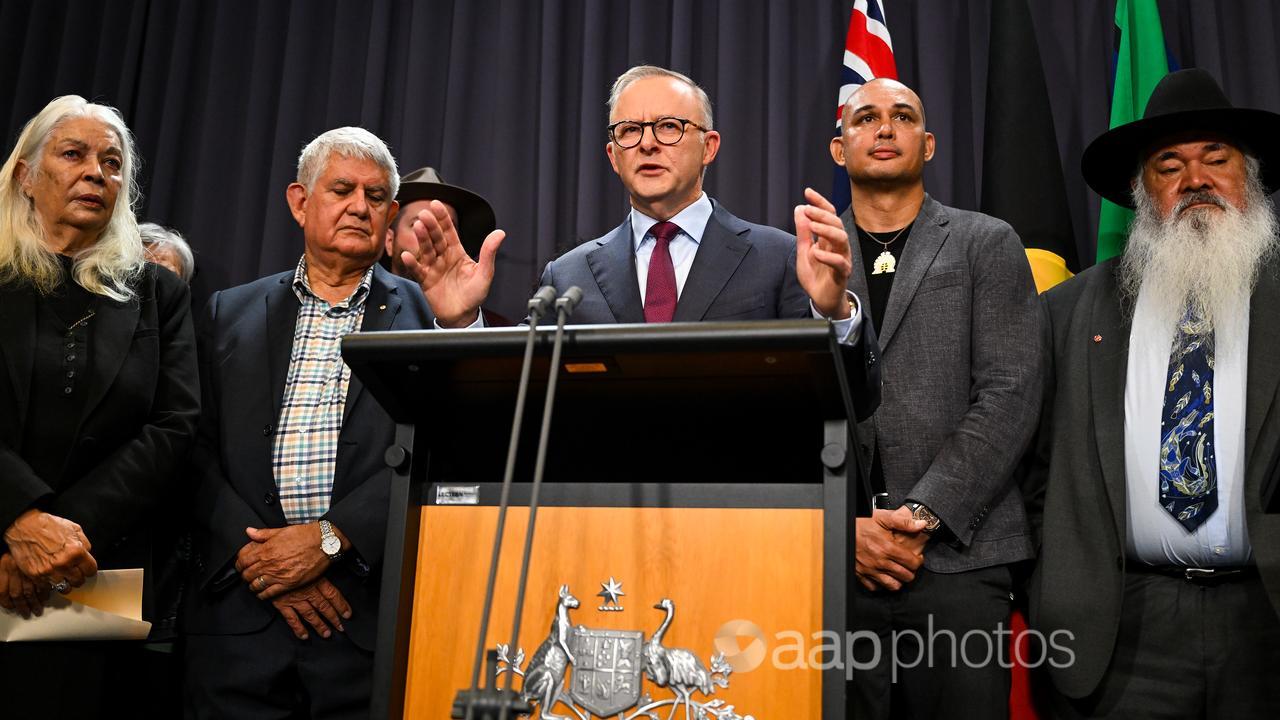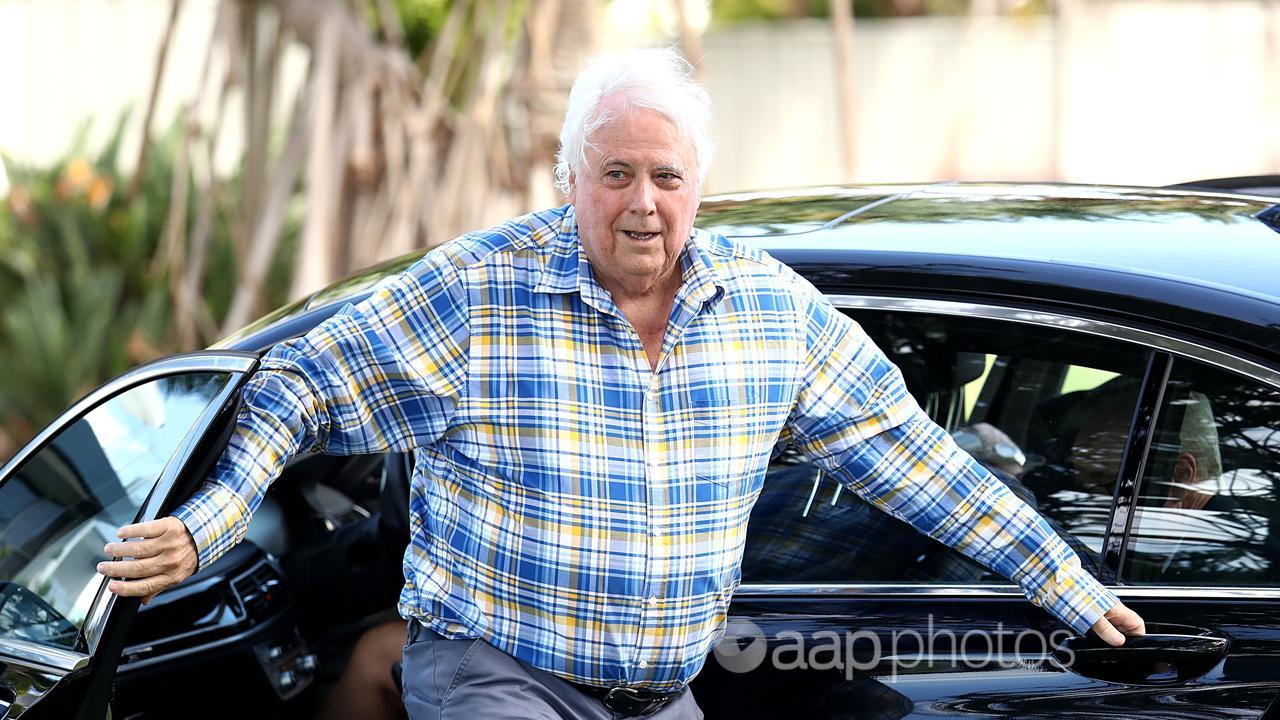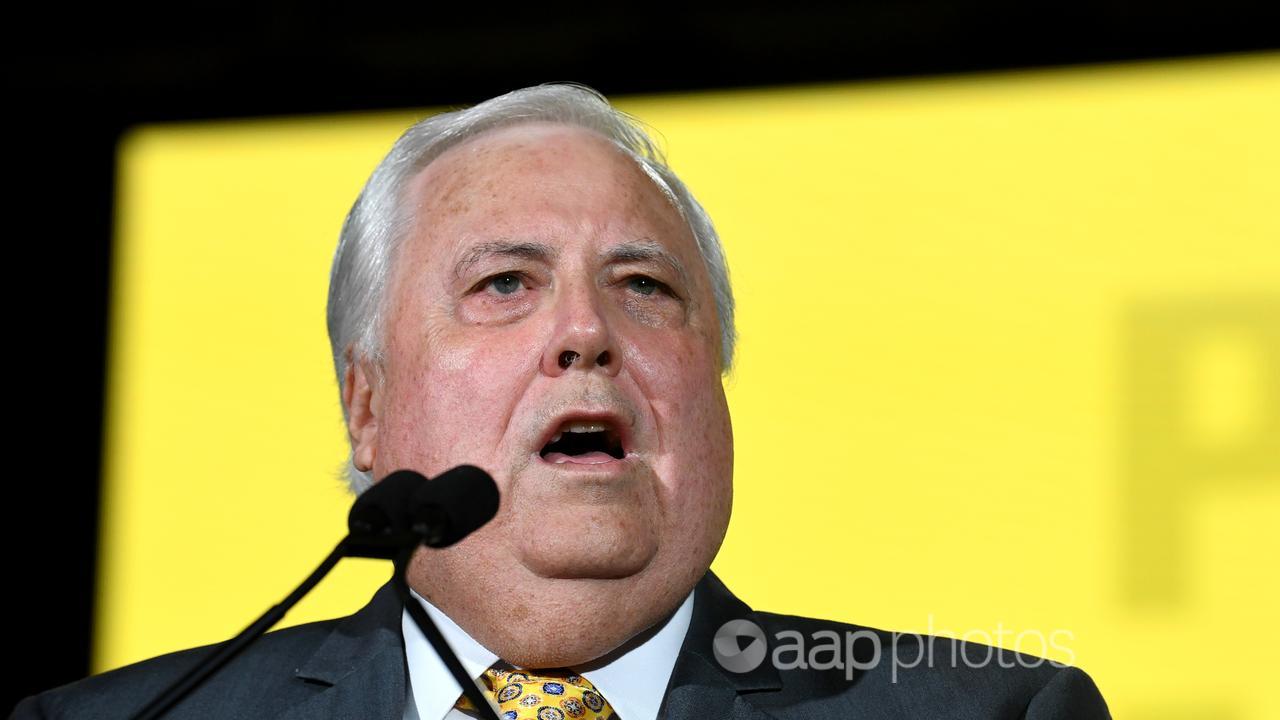Mining magnate and former politician Clive Palmer has claimed the voice to parliament will result in Indigenous Australians losing their basic legal rights.
Mr Palmer told Sky News host Paul Murray that Indigenous Australians will no longer have the right to approach their member of parliament, make representations to the government or take action if the ‘yes’ vote prevails in the upcoming voice referendum.
The claim is false. The voice to parliament will not take away or curtail the political or legal rights of any Australians, including Indigenous people. Legal experts say Mr Palmer’s claim is nonsense.
Australians are set to decide on whether to add an Indigenous voice to parliament into the constitution at a referendum later this year.

The voice, as set out in the proposed constitutional amendment, would make representations to parliament and the executive on matters relating to Indigenous Australians.
“What you’ve got to understand is under our constitution, all Australians, be they black or white, have the same right,” Mr Palmer said in his Sky News interview (audio mark 1min18sec).
“They have the same right to approach their member of parliament, to make representations to government or to commence legal action.
“Under the voice, if you’re an Indigenous person, you won’t have that right anymore, you’ll have to go to your committee.
“When you make a complaint to the public service, they’ll say ‘well look, you’re an Indigenous person, you go to the committee’. That committee may take notice of what you say, it may pass on your representation or it may do nothing.”
The video was shared on Twitter by Senator Ralph Babet, who represents Mr Palmer’s now-deregistered United Australia Party.
Associate Professor Harry Hobbs, a constitutional law and human rights expert at the University of Technology Sydney, said there is “absolutely no truth” in the claim.
“The Voice will not take away any rights that Indigenous Australians have,” Dr Hobbs said in an email.
“In fact, it will not take away any rights any Australian has.”
University of Sydney professor emerita of constitutional law Anne Twomey agreed, describing Mr Palmer’s claim as “nonsense”.
“The existence of a Voice does not take away the voting rights of any Indigenous Australian or remove their ability to approach and request help from their local Member of Parliament.
“Nor would it prevent an Indigenous Australian from complaining to the Ombudsman or initiating judicial review proceedings in relation to a decision made by a government decision-maker.
“There is nothing in the proposed amendment at all which restricts or takes away the existing rights of individuals.”
Gabrielle Appleby, a law professor at the UNSW Sydney, said Mr Palmer’s claim was “simply false”.

“The constitutional amendment, to create an Aboriginal and Torres Strait Islander Voice creates a collective right for Aboriginal and Torres Strait Islander people to make representations to government and parliament on laws, policies and decisions that affect them,” she said.
“This has no impact whatsoever on the pre-existing capacity of Aboriginal and Torres Strait Islander people to approach their members of parliament, the government, or the right to bring legal action in the courts.”
The final details of the voice will only be confirmed once legislation is passed – and only if the ‘yes’ vote succeeds.
However, there is nothing in the proposed constitutional amendment to provide any evidence to support Mr Palmer’s claim.
The businessman’s office did not respond to AAP FactCheck’s request for evidence to support his claim.
The Australian Electoral Commission has been debunking misinformation relating to the voice referendum process here.
The Verdict
The claim that the voice to parliament would mean Indigenous Australians lose their basic legal rights is false.
While the final details of the voice won’t be known until after its structure is legislated, and that will only occur if the ‘yes’ vote succeeds, there’s nothing in the proposed constitutional amendment that even vaguely supports Mr Palmer’s claim.
Multiple constitutional experts dismissed the claim, describing it as nonsense.
False – The claim is inaccurate.
AAP FactCheck is an accredited member of the International Fact-Checking Network. To keep up with our latest fact checks, follow us on Facebook, Twitter and Instagram.
All information, text and images included on the AAP Websites is for personal use only and may not be re-written, copied, re-sold or re-distributed, framed, linked, shared onto social media or otherwise used whether for compensation of any kind or not, unless you have the prior written permission of AAP. For more information, please refer to our standard terms and conditions.


















